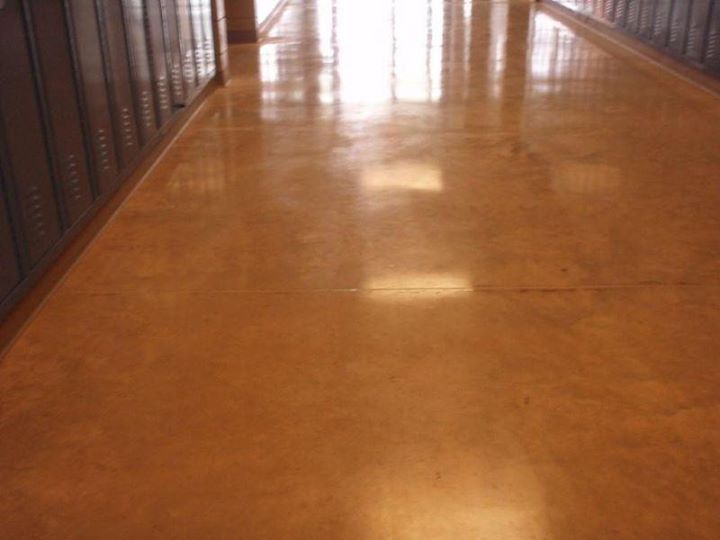
![]()
Applying a sealer to decorative concrete is recommended to prolong the life of the floor, in addition to this applying a sealer also enhances the appearance of the concrete. There are a lot of questions regarding sealers and how to pick the right one, so we compiled a list of some of the more common questions with some answers.
What types of sealers can be used in concrete floors inside?
Sealers that create a protective film on the surface of the concrete, also known as film-forming sealers, are most commonly used with decorative concrete floors inside the home or business. Within the realm of film-forming sealers are many different types of sealers, each types has it’s pro’s and con’s. Some of the types sealers are penetrating sealers like silanes, siloxanes, silicates, and siliconates; acrylics; polyurethanes; and epoxies.
2. Will the sealer be compatible with the treated decorative floor?
When applying a sealer you want to take into consideration what type of decorative application you are applying it to. Is the concrete stained, polished and dyed, or is there an overlay? It is important to check with the product's manufacturer to see if there are any contraindications with the product and certain types of sealers. It is possible for certain types of sealers to react with particular coloring agents or overlays which can cause unwanted reactions such as bubbling, blistering, or bleeding.
3. What sealer will best protect concrete floors from stains and scuffs?
Polyurethane or epoxy sealers are good options for decorative interior floors because they are high-build sealers that are resistant to scuffs and stains. They will provide great protection and are low maintenance. They are also good options for high traffic areas, such as in industrial or retail environments. Using softer acrylic sealers will require more maintenance including several applications of sacrificial floor finish or wax to prevent wear and scuff marks.
4. Are sealers safe to inhale when they are applied?
Usually when working inside you will want to use a water-based sealant instead of a solvent-based one. This is especially true if the area can not be ventilated. This is because solvent-based sealers are very flammable which can emit fumes that can be bad for your health to inhale. They may also contain VOCs, which aren’t good to inhale either.
5. Which sealer will provide the desired level of sheen on the floor?
You will want to select a sealer with a medium to high-gloss sheen if you are trying to achieve the look of polished marble. Most acrylic sealers come in various levels of sheen. If you do not want a high sheen there are also film forming sealers and low-gloss or matte finishes available.
6. How long will the sealer last?
There are multiple factors that go into this. One is how well the floor has been maintained. Another is the type of sealer used. Typically, epoxies and urethanes are very durable and can last for several years before needed to reapply. Also, keep in mind that you get what you pay for when it comes to sealers. Avoid having to reapply every year by getting a good quality product, it will save you money in the long run.
There are so many creative and custom options for finishing concrete, but first and foremost important is the concrete itself. At Custom Concrete Creations we have state of the art equipment and a properly trained team with years of experience. Custom Concrete Creations is a premier contractor serving the Omaha area as well at the Midwest. Give us a call or send us an email for your custom concrete finishing needs today!
